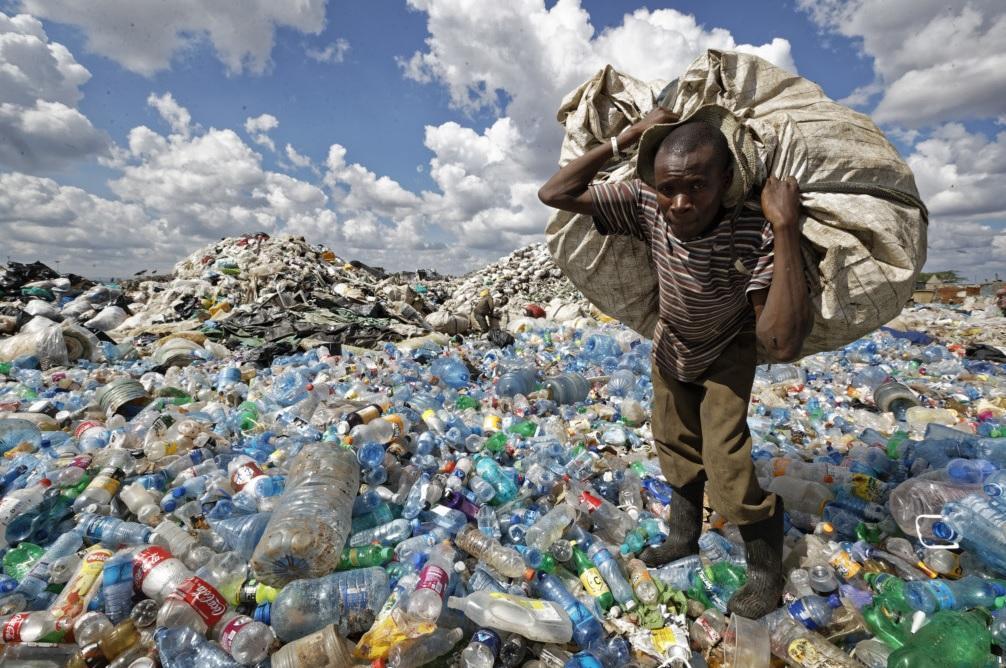
What can be done to prevent Africa from becoming the world’s biggest dumping ground for plastic?
That’s one of the big questions facing United Nations members next week at a stock-taking on Earth’s environmental woes.
From Antananarivo to Dakar via Nairobi and Conakry, African cities are scarred by huge landfills where plastic waste is measured in the thousands of tonnes.
The dumps are smelly and dangerous, releasing smoke and toxic particles.
They are also a place where impoverished men, women and children pick through the filth to find enough to survive.
Blown by the wind or swept downstream in rivers, plastic waste pollutes the sea, forests and fields, threatening wildlife, and eventually humans too, because microscopic particles enter the food chain.
“The plastic bags are real killers,” said Hama Abdoulaye, a shepherd living near Niamey, the capital of the Sahel state of Niger.
“The animals swallow plastic when they graze on the grass, and die slowly.”
The U.N. Environment Programme (UNEP), which hosts the three-day U.N. Environment Assembly opening in Nairobi today, says plastic pollution in Africa is accelerating, driven in part by poor rubbish collection and lack of recycling facilities.
The problem poses “a significant threat for the environment and the economies of the continent,” it said in a recent report.
Some 300 million tonnes of plastic waste, the equivalent weight of the planet’s human population, are produced each year.
But globally less than 10 percent is recycled, a figure that anecdotally is far smaller in Africa, although reliable statistics for the continent are rare.“If nothing is done in a few years, Africa will become a dustbin of plastic bags and waste,” said Ousmane Danbadji, head of an NGO called the Niger Network for Water and Sanitation.
In 2018, China decided to ban the import of plastic waste, a move followed by other Asian countries such as the Philippines and Malaysia.
This has raised fears of a knock-on effect -- that wealthy economies will increasingly turn to Africa to dispose of their plastic rubbish. Africa is already a long-established destination for other hazardous products and materials such as batteries or used electrical and electronic components, particularly Ghana and Nigeria.
“There is a great risk of seeing all the waste from industrialised countries dumped here in Africa,” said Yves Ikobo, head of a grassroots organisation in DR Congo called Planete Verte RDC.
In Nairobi, African countries will try to reach a common position on banning the import of plastic waste into the continent, with a view to talks for an international agreement against plastic pollution.
Since the beginning of the 2000s, most of the states of sub-Saharan Africa have gradually adopted legislation prohibiting production, import, marketing, use and storage of plastic bags and packaging.
But the laws are routinely flouted or poorly applied. The Economic Community of West African States (ECOWAS) said it was “finalising a draft regulation” on harmonising national rules among its 15 members.
However, member states “have not yet agreed... on a deadline for the import of plastics,” it admitted.
“There is a lack of commitment from many states in Africa,” said John Gakwavu, head of a Rwandan environmental conservation NGO.